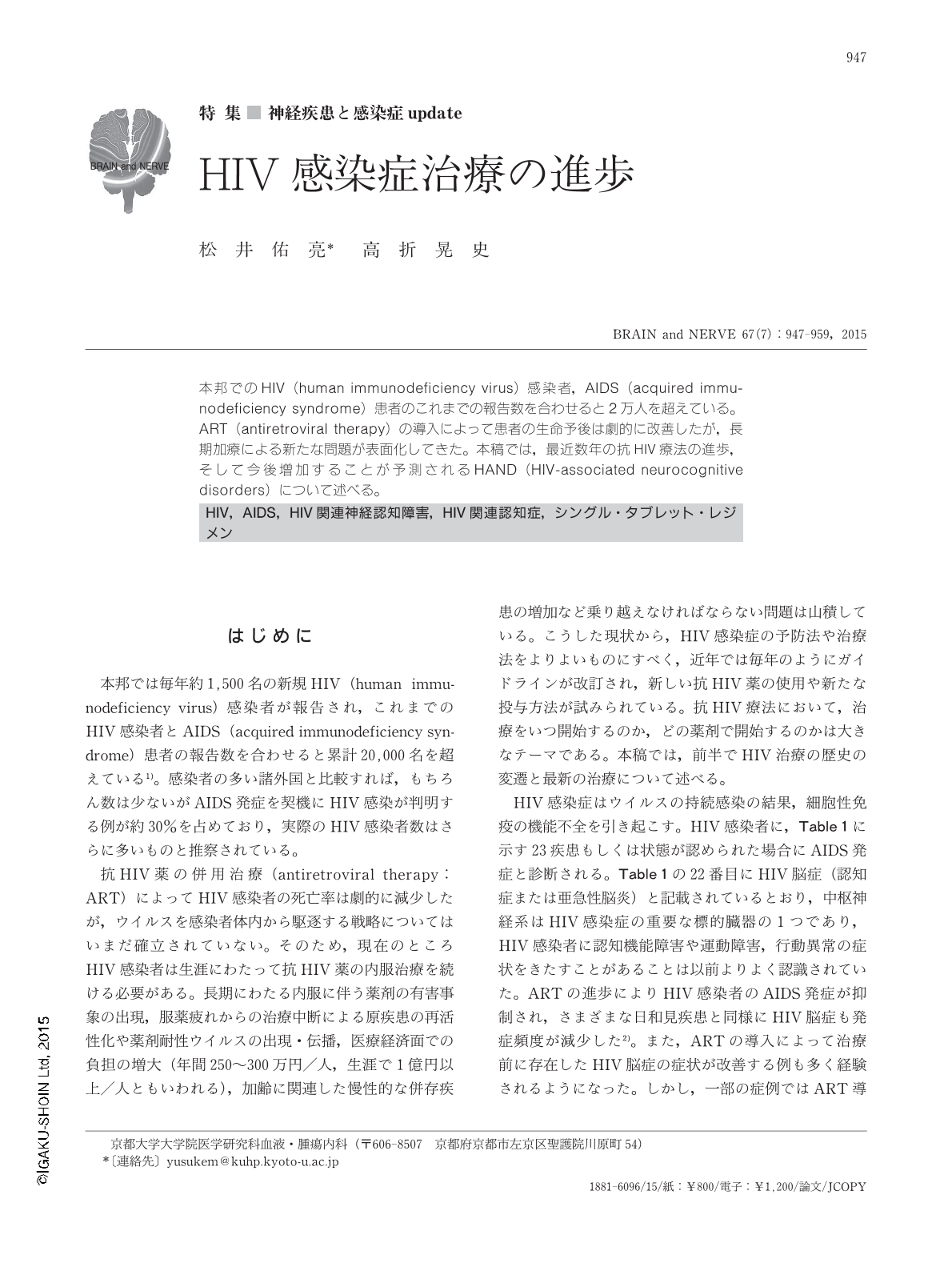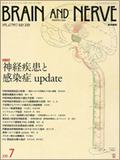Japanese
English
増大特集 神経疾患と感染症update
HIV感染症治療の進歩
Progress in Antiretroviral Therapy and HAND
松井 佑亮
1
,
高折 晃史
1
Yusuke Matsui
1
,
Akifumi Takaori-Kondo
1
1京都大学大学院医学研究科血液・腫瘍内科
1Department of Hematology and Oncology, Graduate School of Medicine
キーワード:
HIV
,
AIDS
,
HIV関連神経認知障害
,
HIV関連認知症
,
シングル・タブレット・レジメン
,
HIV
,
AIDS
,
HIV-associated neurocognitive disorders
,
HIV-associated dementia
,
single tablet regimen
Keyword:
HIV
,
AIDS
,
HIV関連神経認知障害
,
HIV関連認知症
,
シングル・タブレット・レジメン
,
HIV
,
AIDS
,
HIV-associated neurocognitive disorders
,
HIV-associated dementia
,
single tablet regimen
pp.947-959
発行日 2015年7月1日
Published Date 2015/7/1
DOI https://doi.org/10.11477/mf.1416200236
- 有料閲覧
- Abstract 文献概要
- 1ページ目 Look Inside
- 参考文献 Reference
本邦でのHIV(human immunodeficiency virus)感染者,AIDS(acquired immunodeficiency syndrome)患者のこれまでの報告数を合わせると2万人を超えている。ART(antiretroviral therapy)の導入によって患者の生命予後は劇的に改善したが,長期加療による新たな問題が表面化してきた。本稿では,最近数年の抗HIV療法の進歩,そして今後増加することが予測されるHAND(HIV-associated neurocognitive disorders)について述べる。
Abstract
Today, over 20,000 people are thought to be infected with human immunodeficiency virus (HIV) in Japan. Antiretroviral therapy (ART) has substantially improved the prognosis of HIV-infected patients, but long-term medication generates new problems. This article overviews the progress of anti-HIV therapies and explains the concept of HIV-associated neurocognitive disorders (HAND) as a noted complication of HIV infection.

Copyright © 2015, Igaku-Shoin Ltd. All rights reserved.


